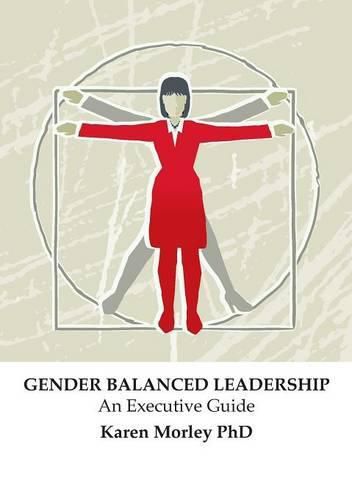Readings Newsletter
Become a Readings Member to make your shopping experience even easier.
Sign in or sign up for free!
You’re not far away from qualifying for FREE standard shipping within Australia
You’ve qualified for FREE standard shipping within Australia
The cart is loading…






This title is printed to order. This book may have been self-published. If so, we cannot guarantee the quality of the content. In the main most books will have gone through the editing process however some may not. We therefore suggest that you be aware of this before ordering this book. If in doubt check either the author or publisher’s details as we are unable to accept any returns unless they are faulty. Please contact us if you have any questions.
What does it take to change the representation of women in leadership? Many executives are keen to achieve gender balance, but knowing what to do, when, and bringing others on board, is not always easy. Worse, it’s hard to find guidance that is based on good evidence. The objectives of Gender Balanced Leadership: An Executive Guide are firstly to share the many evidence-based insights gleaned from extensive research and secondly to share the tactics successfully used to change gender representation in leading organisations. The book has chapters on leadership, culture, work practices, talent and performance management. Each chapter summarises the evidence about gender balance at work. What are best practice organisations doing, and what results have they achieved? Each chapter also provides a guide on how to make progress towards best practice. Each section within each chapter turns the evidence and experience into a straightforward To do checklist of workable actions. Having assessed their organisation’s progress and reviewed best practice, executives can then select three to four key actions to inspire and focus their change efforts. The book’s final chapter focuses on personal change. The evidence is clear that unconscious bias is an important factor in the perpetuation of gender imbalance. The chapter provides a process for raising personal awareness of unconscious bias and allowing conscious evaluation. Practical tools are provided to help minimise the impact of bias on decision making.
$9.00 standard shipping within Australia
FREE standard shipping within Australia for orders over $100.00
Express & International shipping calculated at checkout
This title is printed to order. This book may have been self-published. If so, we cannot guarantee the quality of the content. In the main most books will have gone through the editing process however some may not. We therefore suggest that you be aware of this before ordering this book. If in doubt check either the author or publisher’s details as we are unable to accept any returns unless they are faulty. Please contact us if you have any questions.
What does it take to change the representation of women in leadership? Many executives are keen to achieve gender balance, but knowing what to do, when, and bringing others on board, is not always easy. Worse, it’s hard to find guidance that is based on good evidence. The objectives of Gender Balanced Leadership: An Executive Guide are firstly to share the many evidence-based insights gleaned from extensive research and secondly to share the tactics successfully used to change gender representation in leading organisations. The book has chapters on leadership, culture, work practices, talent and performance management. Each chapter summarises the evidence about gender balance at work. What are best practice organisations doing, and what results have they achieved? Each chapter also provides a guide on how to make progress towards best practice. Each section within each chapter turns the evidence and experience into a straightforward To do checklist of workable actions. Having assessed their organisation’s progress and reviewed best practice, executives can then select three to four key actions to inspire and focus their change efforts. The book’s final chapter focuses on personal change. The evidence is clear that unconscious bias is an important factor in the perpetuation of gender imbalance. The chapter provides a process for raising personal awareness of unconscious bias and allowing conscious evaluation. Practical tools are provided to help minimise the impact of bias on decision making.